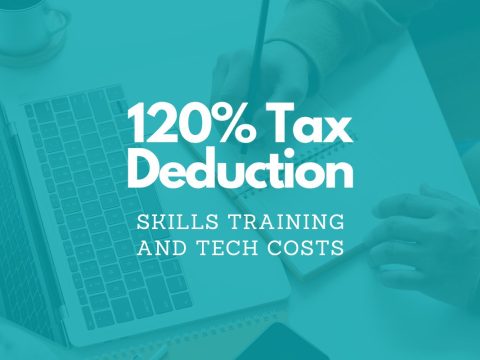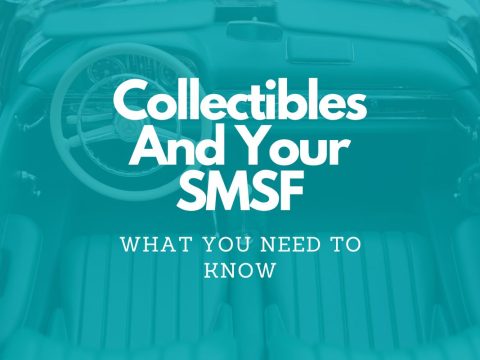Viewpoint – Autumn 2014
New appointments
We are very pleased to announce the appointment of two new members to the Allworths team, Colleen Hosking and Sophia Tong.
Colleen joins us from EY where she was an audit partner for a multitude of listed, private and not for profit clients. She has come on board to head up our new audit company, Allworths Assurance & Advisory Pty Ltd. Sophia joins us as a Business Services Manager with experience in commerce and as a Tax Manager at KPMG.
We are excited about the talents and experience that Colleen and Sophia bring to the firm and look forward to introducing them to our clients in due course.
Personal Property Securities Register
The Personal Property Securities Register (PPSR) is where details of security interests in personal property can be registered and searched.
Transitional arrangements have been in place for the last two years since commencement of the PPSR on 30 January 2012. The transitional provisions were designed to assist with the changeover and provide protectionfor security interests that existed prior to the commencement of the PPSR.
The transitional arrangements for the PPSR expired on 31 January 2014.
Suppliers of personal property who failed to register their security interest during the transition period may lose their priority in the event of their customer’s insolvency. From 1 February 2014, security interests ‘perfected’ on the PPSR will take priority over all unregistered interests, including non-registered transitional security interests.
Commercial arrangements that may be deemed transitional security interests and eligible for registration on the PPSR include:
- Leases/hiring agreements
- Retention of title supplies
- Commercial consignments.
Should the security interest have been migrated to the PPS register, then the registration details need to be reviewed to identify and correct any errors. Should a customer become insolvent, accuracy of the registration will be important to ensure there will be no issues with enforcement.
For further information and to access a range of tailored fact sheets visit AFSF (formerly known as ITSA) or speak to your solicitor.
Privacy Law reform changes come into effect
Changes to the Privacy Amendment Act 2012 (Cwlth) commence on 12 March 2014. These changes establish 13 Australian Privacy Principles (APPs), which replace the existing National Privacy Principles. These principles identify the information that must be contained in an organisation’s privacy policy, including:
- How, what, why and for what purpose the business collects and holds personal information
- Whether the entity is likely to disclose personal information to overseas recipients
- If the entity is likely to disclose personal information to overseas recipients, the countries in which such recipients are likely to be located, if it is practicable to specify those countries in the policy.
Personal information is defined as information that identifies or could reasonably identify an individual. That might include a person’s name, address and date of birth, but it can also include bank account details, photos and videos.
The business’s privacy policy must be available free of charge and in an appropriate form and include information about how an individual can complain about a breach. It must also outline how the business will deal with any complaints.
For cloud data stored outside Australia – on computer servers outside Australia – the country where the cloud service provider’s servers are located will need to be disclosed to clients.
For more information go to:
http://www.oaic.gov.au/images/documents/privacy/privacy-guides/comparison_guide_APP_NPP.pdf
Preparing to engage workers
If you are planning to hire new workers, there are a few things to consider and organise in order to meet your tax and super obligations. One thing you must do is make sure your workers are legal – they must be Australian citizens, permanent residents or non-citizens with Australian visas that allow them to work.
- Employee or contractor?
Determine whether your workers are employees or contractors. It is important you know the difference between the two because your tax and super obligations will vary depending on whether your worker is an employee or contractor.
- Pay as you go (PAYG) withholding
When you pay employees or contractors, you may need to withhold tax from their pay and send these amounts to the ATO regularly. You will need to withhold tax from:
- Employees
- Contractors who have a voluntary agreement with you
- Contractors who do not provide you with an ABN.
- Super
You need to pay superannuation for both your employees and for any contractors you are paying primarily for their labour. A default super fund needs to be established and you should also have a knowledge of super choice arrangements.
- Fringe benefits tax (FBT)
When you provide fringe benefits to your employees or to their associates, such as payment of school fees, you may have to pay FBT. When you provide benefits to contractors you will generally not attract FBT, however when benefits are provided by an associate of yours or a third party under an arrangement with you, you may have to pay FBT.
- Expenses you can claim
Most of the expenses you incur as a result of engaging workers are eligible tax deductions.
- Setting up a workplace giving program
You may consider setting up a workplace giving program to allow your employees to regularly donate to their preferred charities.
There are many issues to consider when engaging an employee. For more information about your tax and super responsibilities as an employer, speak to us.
Small Business Assist
The Australian Taxation Office’s ‘Small Business Assist’ tool provides answers to small business tax and super questions. Being an online resource, the tool can be accessed by small business owners at any time. It delivers tailored and accurate information sourced from a range of websites.
It includes information such as:
- Registering for an Australian business number
- Understanding and registering for GST
- Employer obligations
- Lodging activity statements.
Small Business Assist can be accessed from a range of devices and features links to relevant webinars as well as blogs and forms.
Visit the ATO website (www.ato.gov.au) to start using the Small Business Assist tool.
Common tax questions answered
In the words of the late Kerry Packer: “I am not evading tax in any way, shape or form. Now of course I am minimising my tax and if anybody in this country doesn’t minimise their tax they want their heads read because as a government I can tell you you’re not spending it that well that we should be donating extra.”
While many people think they understand the existing tax regulations, myths and misconceptions still abound. In this article, we aim to address some of the more common tax questions:
Questions 1:
“If I put a work sticker on my car, can I deduct 100% of my car expenses?”
Answer:
Simply – no. Deductions are based on four different methods. The methods are:
- Cents per kilometre (limited to 5,000 business kms per year)
- 12% of original value (this can be used if you travelled more than 5,000 business kms per year)
- One-third of actual expenses (this can be used if you travelled more than 5,000 business kms per year)
- Logbook method (this requires a logbook to be kept over a continuous 12 week period; the logbook can last for five years as long as it still represents continued use of the car).
Whether the car is heavily branded with work logos or not, the deduction only applies to kilometres travelled for business. Travel from home to work or work to home are not deductible. Attending meetings, running business errands and the like are deductible.
For those individuals who do use their car extensively for work in terms of kilometres travelled, log books are good. For those who do not use their car extensively, speak with us to determine which deduction method to apply.
Question 2:
“I’m looking at buying a car, should I lease, hire purchase or Chattel mortgage?”
Answer:
A lot of time can be spent analysing the benefits of each purchase option however it usually comes down to personal preference. Chattel mortgage and hire purchase (for tax) are treated similarly. Some agreements that say “lease” are actually hire purchase upon reading the detail.
Before committing to any such agreement, ensure that you understand what you are signing up for, or better still, call us before you get the finance.
Here is a brief matrix of the two:
| Lease | Hire Purchase or Chattel Mortgage | |
| Ownership | Not you | You |
| Tax deductibility | The full lease payment | Interest component of the repayments and depreciation of the car |
| GST | 1/11th of the lease payments times business use | Business use of the GST on the purchase price |
| Complexity of accounting | Simple | Not as simple |
In the current environment, getting finance can be a struggle however it is the preferred option over paying cash. For most small business owners, taking the simplest option is preferred which, in this case, would be the lease option.
Question 3:
“I’m looking to start a business, what structure should I have?”
Answer:
Many factors need to be considered when deciding what structure to adopt – income tax, capital gains tax, GST and stamp duty, to name a few. Making the wrong decision can become a costly mistake.
While this article cannot cover all the areas of tax structuring, there are some important points to consider as a starting point:
- In today’s litigious environment there are not many businesses that suit a sole trader structure for the long term. Being a sole trader includes basically a personal ABN and, in some instances, a business name. While many may start as a sole trader, this structure needs to be reconsidered once the business is established and generating an ongoing income.
- Family Trusts allow children of any age to receive tax free income. The amount of income children under the age of 18 can receive is limited, but it all helps to keep money in your pocket.
- Having a company somewhere in the structure (usually as the trustee of a trust) provides asset protection – an important feature protecting your personal assets from creditors.
- Forming a company is not necessarily a great business or investment structure. CGT, tax treatment, complexity of accounting and stamp duty all have some real traps for companies.
- For businesses or investments with two or more individuals or families, partnerships should be considered. Unit trusts are also effective, as are hybrid trusts.
It is worth talking to us in order to explore these options.
Getting your tax structuring right provides huge tax benefits (both in terms of capital gains tax and income tax), asset protection and can even improve your chances of getting bank finance.
Contact us to determine what will work best for you and your business.
NBN business consultation
The government is currently inviting small businesses to make submissions to the National Broadband Network (NBN) Panel of Experts. The panel is seeking views from industry, the public and businesses about the regulatory framework for broadband going forward.
The panel will be conducting:
- a cost-benefit analysis of broadband policy
- a review of regulatory arrangements for the NBN.
Submissions close 14 March, 2014. For more information
visit the go to www.communications.gov.au
Taking over an existing business
Taking over an existing business, whether it is buying an established business or taking over the family business requires careful analysis and planning.
When buying a business, some aspects to consider include:
- Why is the business being sold? What is the vendor’s history with the business?
- Are there any sales patterns or trends? What is the business’ customer base? Who are its current suppliers?
- What are the fixed and variable costs for the business? Are there any staff costs?
- Is the business profitable? How does the business’s previous financial records look? Has it consistently run a surplus?
- What assets does the business have? Does it have any intellectual property or leasing arrangements?
- Does the business have any outstanding debts?
What refunds and warranties still exist for the business? - Have you reviewed the purchase agreement carefully?
- What kinds of tax will apply? Consider GST, Capital Gains Tax, and stamp duty implications.
- What are the legal agreements on leases? What is the business structure?
- What has and hasn’t worked for the previous owner?
While a prospective business owner must carefully consider the factors listed above
prior to purchasing an existing business, taking over a family business requires consideration of a different set of factors. They include:
- work-life balance – business creeping into family life
- different expectations and work ethics between generations
- rivalries – family members who don’t work well together or are too competitive
- older generations not willing to let go and handover control, or younger generations not wanting to join the family business
- deciding the future direction of the business
- choosing the right person to take over the business
- managing disagreements between family members.
The benefits of such a takeover can be significant. Those that take over a family business often have a longer term view of success and plan for returns over a longer period. They typically have an increased responsibility for those who control and manage the business potentially leading to stronger customer focus, community reputation and special care for employees.
One of the biggest challenges of owning a family business is balancing the relationship between work and family.
Regardless of which option you choose – buying an existing business or taking over a family business, discuss the plan with us to ensure you are making a fully informed decision.
DISCLAIMER: This publication is copyright. Apart from any use as permitted under the Copyright Act 1968, it must not be copied, adapted, amended, published, communicated or otherwise made available to third parties, in whole or in part, in any form or by any means, without the prior written consent of The Institute of Chartered Accountants in Australia. The contents of this publication are general in nature and we accept no responsibility for persons acting on information contained herein.



